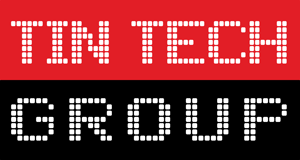Travellers are at different stages of readiness for contactless hotels, according to research by Dr Fei Hao and Professor Kaye Chon of the School of Hotel and Tourism Management (SHTM) at The Hong Kong Polytechnic University. Hospitality businesses need to consider this variation when developing tactics to increase client equity. Services that elicit delight may be the greatest approach to keep customers who are still sceptical of contactless technology. Positive experiences in a contactless hotel may especially calm those who have COVID-19 fears.
The epidemic has accelerated a contactless trend that was already well-established, with products like Hong Kong's Octopus transport card and smartphone payment becoming more popular. A variety of cutting-edge contactless systems are being implemented in the hotel industry to safeguard both visitors and staff members against illness. According to the researchers, "hospitality enterprises around the world have widely used mobile control (e.g., mobile check-in and check-out), motion detection, and voice control (e.g., smart speaker TVs)." Numerous hotels in mainland China provide once-futuristic amenities like robotic room service and facial recognition during check-in.
These amenities enhance the hotel experience in various ways even if they are still far from being widespread. Touch-free systems enhance the convenience and potentially even a sensory experience of a stay while also bringing peace of mind during the pandemic. Customers are more inclined to spread the word about their excellent experiences when they feel safer and more at ease. The researchers define "customer equity" as "the sum of the discounted stream of cash flows generated from a company's pool of customers," and they find that these perks directly improve it for hotels.
However, switching to contactless has its hazards from a business perspective. For several days or even weeks, guests may make their home in a hotel. Are these customers satisfied with a new, less-touchy method of customer service? According to the researchers, because traditional hospitality services rely on the "human touch," concerns have been raised over the effectiveness of contactless services. As a result, even while customers may appreciate the efforts made to battle illness, the contactless revolution may harm rather than build customer equity since visitors who miss the old, tactile, personalized ways of hotel service may be overall less content with their stay.
It costs a lot to use contactless technology for a guest's whole stay. Hotels shouldn't take chances during a pandemic; such a large expenditure can only be justified if it generates a solid return. However, the literature on tourism marketing has neglected to address the return on investment (ROI) of contactless hospitality. The connection between contactless service and customer experience, which has a significant impact on the important indicator of customer equity, is also understudied. The researchers chose to "examine the ROI of contactless hospitality from the standpoint of consumer equity" to close these gaps. This meant that they would focus on the elements that support and undermine customer equity in contactless hotels.
As a diverse group of people, hotel visitors cannot be expected to all respond to the contactless trend in the same manner. The study determined that a major personality trait that affects how consumers perceive contactless services is technology readiness. When interacting with new technology, a person's technological readiness is a persistent psychological propensity to experience a specific feeling, such as exhilaration, curiosity, or unease. The authors state that "the hospitality industry should integrate clients' technological readiness into service design and marketing campaigns" because of its significance.
The Technology Readiness Index (TRI), created in 2000, measures people's openness to accept technological change by assessing their optimism, inventiveness, discomfort, and uneasiness about new technology. Contactless technology "needs customers to participate more with the technology-based service ecosystem," the authors tell us. The researchers looked at whether TRI ratings altered the relationship between customer experience and equity in contactless hotels because persons with higher technology readiness should feel more at ease in such an ecosystem.
The three main parts of customer equity are "value," "brand," and "connection." About 1,500 people from mainland China who had stayed in contactless hotels were polled by the researchers to determine how their traits and travel experiences affected their customer equity. In a novel move, the researchers identified customer delight, or a guest's surprisingly high degrees of joy and enthusiasm, as an emotional response that might be just as important as a satisfaction score in securing consumer equity.
The participants also completed a survey on their contactless hotel experience and took the TRI test to gauge their level of technological preparedness. The researchers created high and low TRI groups among the respondents to test their theory that technology readiness affects how customer experience, joy, and equity are related. Additionally, they investigated if customer equity influenced brand trust, a vital marketing result. Did consumers with higher equity have more faith in hotel brands, and did their concern for the pandemic's health effects have an impact on this?
The findings also supported the importance of health issues, which is especially important in the newly developing post-pandemic era. The impact of customer equity on fostering trust was greatest among contactless hotel guests who focused on COVID-19 concerns. This study highlights the necessity for hotels to protect the happiness and safety of guests with health difficulties as we adapt to the "new normal" in the hospitality and tourism industries, which face an uncertain future. The researcher notes that "in the coming years, the current situation in China may depict a future scenario for many parts of the world."
How prepared are visitors for contactless technology? It revealed that the low TRI group, which included the customers who were the most skeptical of new technologies, benefited greatly from enjoyable encounters in terms of equity. This implies that it's important to give unexpected gifts to people who would be hesitant to even stay in a contactless hotel. One might envisage a wide range of happy surprises with the technologies of today. The researchers themselves offer a few: "The smart room might have already established the clients' preferred temperature, lighting, and even music when consumers enter their room."
Hotels have implemented contactless technology whenever possible in response to the COVID-19 pandemic threat. Safety has grown as a result, although perhaps at the expense of friendly customer service. Hotel operators must come up with innovative ideas for how to enhance visitors' experiences in the contactless era if they want to keep them. The unexpected delights that a contactless hotel may provide appeal to guests with the lowest level of technological readiness. Another possible strategy to comfort those who have serious concerns about infection is to use touch-free services.
- TAGS / KEYWORDS:
























.jpg)




.png)










